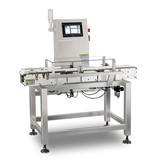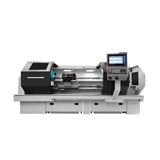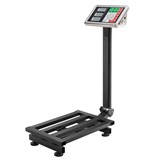So what is it really all about?
Industrial relations can refer to the development of policy to facilitate the relationship between employers, workers and their representatives.
Industrial relations also refers to the ratified agreements between employers and workers (the awards), and the institutions – like the federal courts and various tribunals, empowered to rule on disputes between employers and workers. Industrial relations is the same thing as “employment relations”.
Where has it come from?
Industrial Relations emerged in the wake of the Industrial Revolution of the 18th and 19th centuries. The emergence of free markets created new social classes.
Wealthy merchants and industrialists employed the new working classes in large numbers to work long hours in low paid and often dangerous jobs. Tradesmens’ guilds, which pre-dated the Industrial Revolution, evolved into the forerunners of modern unions under the influence of industrialisation as labour was forced to organise to better represent workers’ interests.
Where is industrial relations at in Australia?
On July 1, 2009 Fair Work Australia (FWA) became the national workplace relations tribunal with responsibility for setting minimum wages and other conditions, facilitating enterprise bargaining and providing remedies for cases of unfair dismissal.
Fair Work Australia replaces the former Coalition government’s Work Choices IR system. It introduced new enterprise bargaining, unfair dismissal, an arbitration tribunal and other legal provisions, and reduced the number of awards from 1560 to 122.
It is also responsible for upholding 10 mandatory National Employment Standards applying to every Australian employee.
An snapshot of the changes can be found at Australian Chamber of Commerce and Industry website here: http://www.acci.asn.au/text_files/media_releases/2010/ACCI_IRSnapshot.pdf
Where is IR going?
Given the ALP’s uncertain grip on power, uncertainty is the distinguishing characteristic of Australia’s current industrial relations landscape.
The future of industrial relations will likely be one where women – who now represent 50% of the union membership base – exert increasing influence, a phenomenon that should accelerate the redistribution of union power from the more traditional trades and industrial unions to white collar and service-based unions.
What are the issues for government?
The minority federal ALP Government’s formal alliance with The Australian Greens will increase pressure on the government to re-regulate the national labour market once The Greens attain the balance of power in the Senate from July, 2011.
The Australian Greens’ industrial relations policies can be viewed here: http://greens.org.au/policies/sustainable-economy/employment-and-industrial-relations
Managing the roll out of the Fair Work IR regime’s modern awards and proving Fair Work Australia is a superior IR regime to Work Choices is a continual challenge for a government that must also find an acceptable solution to Australia’s acute skilled labour crisis.
What are the issues for the community?
The new Fair Work Australia regime attempts to provide greater certainty and security on key community issues like pay rates, parental leave, working hours, leave and holidays, training and work practices.
The test for the community will be if the new protections come at the expense of productivity and profit and ultimately, work security and jobs.
What are the issues for business?
There are seven components to Fair Work Australia that businesses have had to absorb since 2009.
Following the introduction of Fair Work Australia, small businesses with less than 100 employees are no longer exempt from unfair dismissal laws. The new Fair Work Australia Ombudsman also has greater coercive powers to force parties into so-called “good faith bargaining” negotiations.
Under new parental leave provisions, businesses must provide flexible working arrangements to employees with school age children.
There is a summary of the implications for small business at the Council of Small Business of Australia website:
http://www.cosboa.org.au/Fair-Work-for-Small-Business/Download-an-informative-whitepaper.aspx














